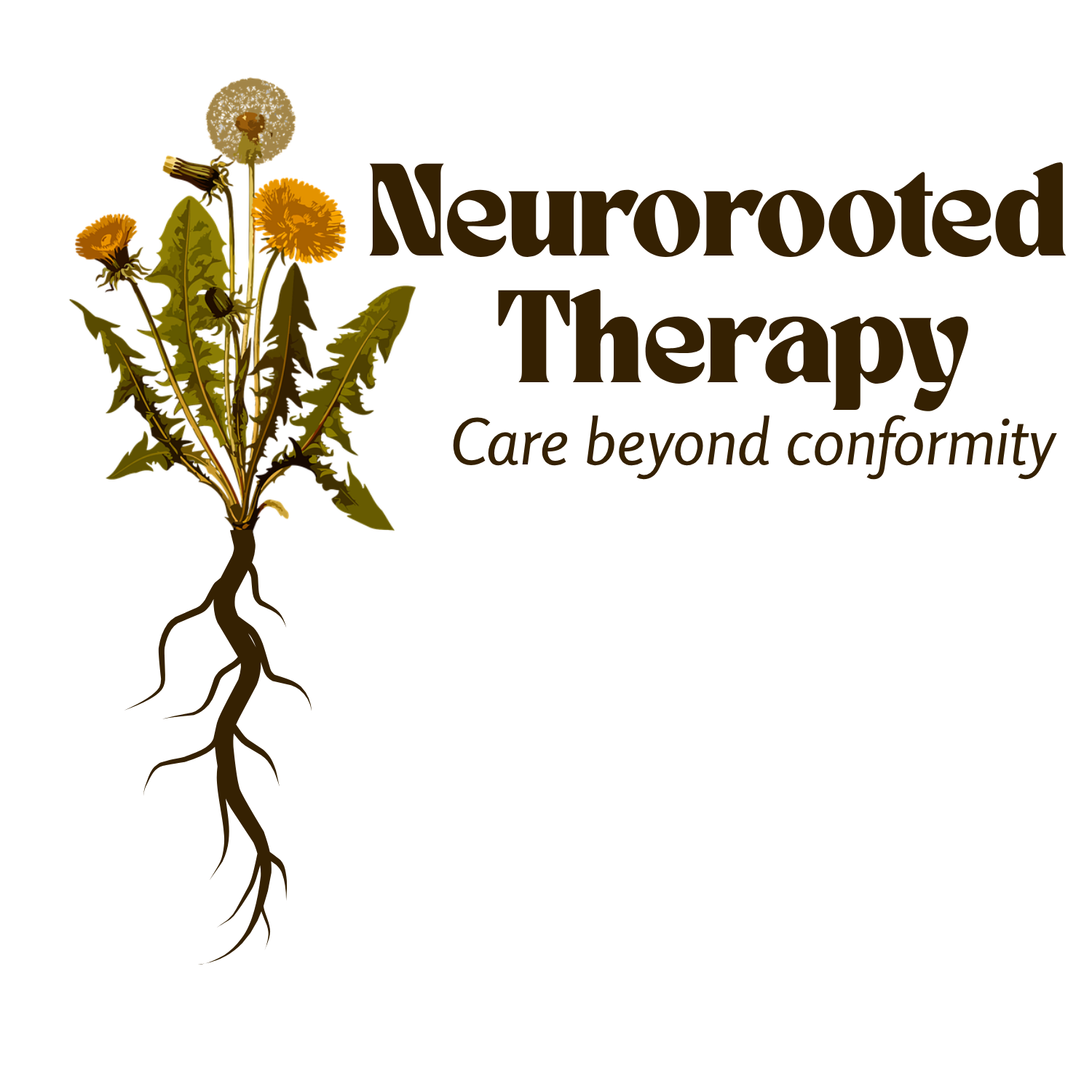My approach
I think of therapy as a collaborative project. I bring tools like training and clinical experience, and you bring your lived experience, the wisdom of your nervous system, and all the ways you’ve learned to survive and adapt. I find that prescriptive approaches don’t work well for most of my clients, so I work in a flexible, integrative way that we can shape together based on what’s best for you as an individual.
My approach is grounded in relationship and shaped by a mix of humanistic, existential, and somatic perspectives. In session, I show up as a real person. You’ll probably notice that I share my honest reactions, reflect what I’m noticing, and ask questions that feel more like a thoughtful conversation than a formal process. I draw from narrative therapy, parts work, and somatic approaches to support growth and trauma recovery. As a Social Worker, I’m always paying attention to how systems like capitalism, ableism, or white supremacy might be shaping your experiences.
Theories that inform my work include polyvagal theory, attachment theory, body liberation, and disability justice.
Some of my focus areas include:
Autism and ADHD (including late/self-diagnosis and unmasking)
Burnout and nervous system overwhelm
Trauma and complex PTSD
Chronic illness, disability, and health-related grief
Queer and trans identity exploration
Nonmonogamy and kink
Religious trauma or recovering from high-control environments
Relationship challenges, boundary setting, or healing from abuse
Intergenerational trauma and breaking generational cycles
Therapeutic Modalities
-
Brainspotting is a somatic therapy that helps process trauma, stress, and emotional blocks by using eye position to access deeper parts of the brain. It allows you to work through experiences that might feel hard to put into words, supporting healing at a nervous system level. I’m trained in Brainspotting Phases 1 and 2.
-
With narrative therapy, we’ll look at the stories you’ve been told/had to tell yourself and get curious about what shaped them. Family, culture, capitalism, systems of power. Narrative therapy aims to help you name harm and imagine a story that is better aligned with your values.
-
I don’t see neurodivergence as something to fix, but a natural part of human diversity. Many of the challenges we experience as neurodivergent people come from navigating a world that’s not built for us. I focus on accommodations, sensory supports, self-discovery and advocacy as important tools, and will support you in naming systemic harm as well as developing the best strategies for you to manage neurodivergent burnout and trauma.
Therapy for Teens
Adolescence can be especially challenging if you’re navigating a late diagnosis, a marginalized identity, or family or relationship challenges. I’ve supported teens with things like school stress, social anxiety, accommodations for school (high school/college) and identity exploration.
In Washington State, teens ages 13 and up can access therapy without the consent of a parent or guardian.
A note for parents and caregivers: Therapy for teens is most effective when autonomy and confidentiality are respected. My communication with you will be based on the needs and explicit preferences of your teen, and therapeutic goals will be determined by the client rather than their family.
Contact me
Interested in working together? Fill out some info and I’ll be in touch shortly to schedule a free 20-minute consult.


